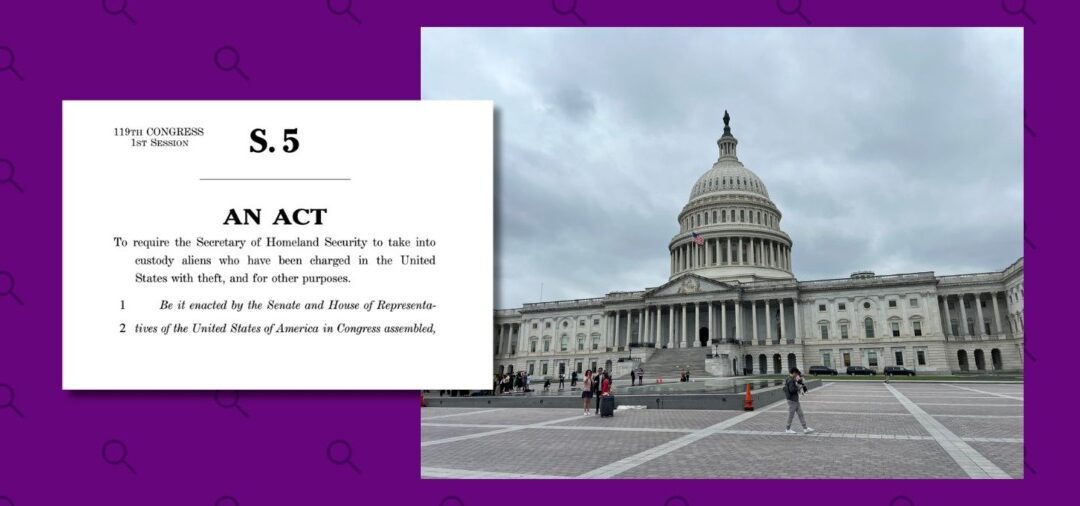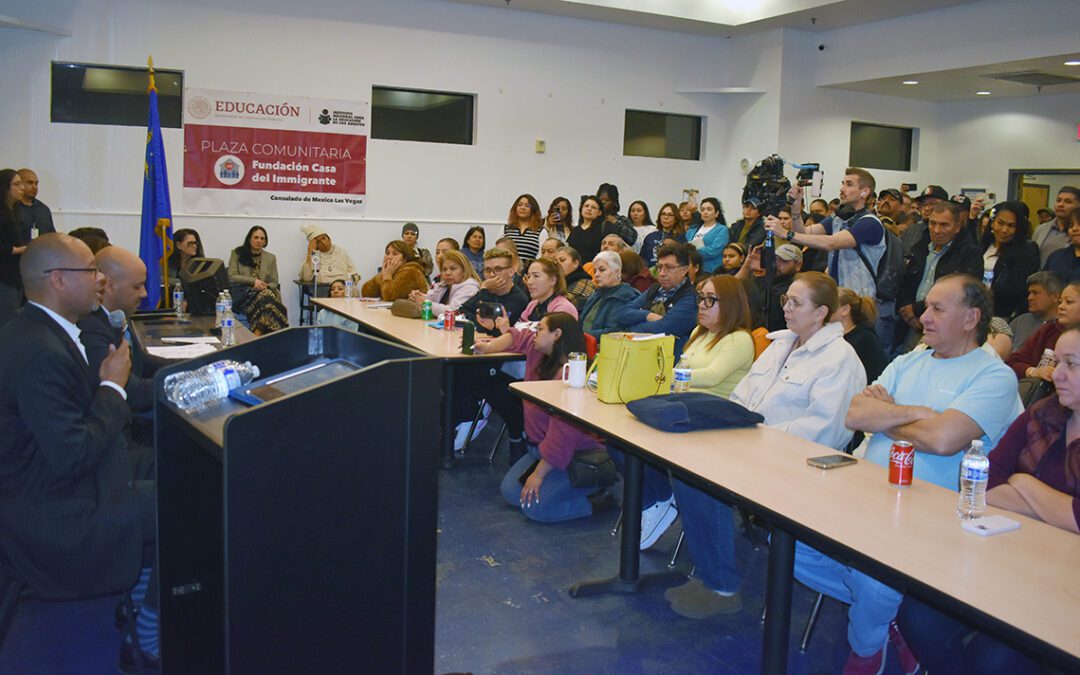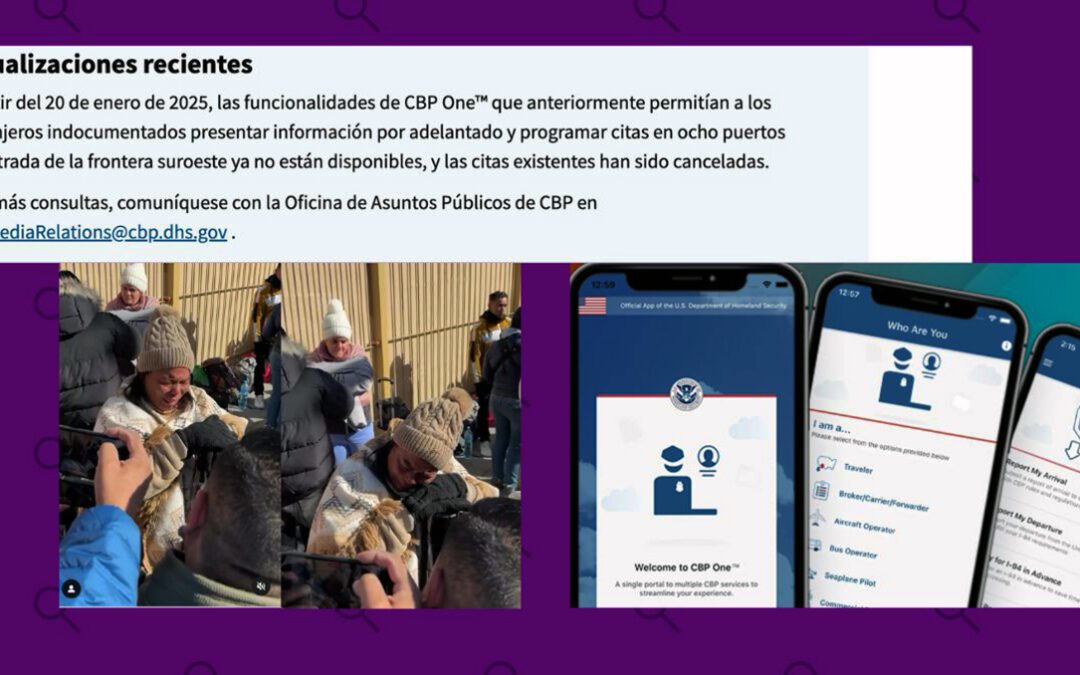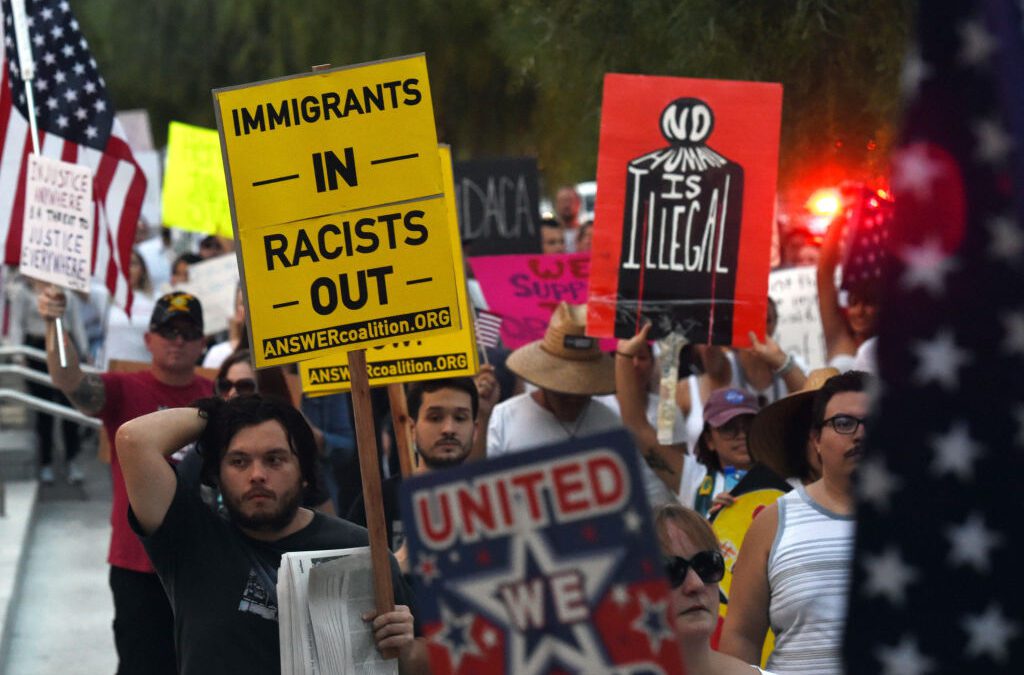
FILE - Aaron Ford, Attorney General of Nevada, answers a question during an interview at the State Attorneys General Association meetings , Thursday, Nov. 16, 2023, in Boston. (AP Photo/Charles Krupa)
The lawsuit alleges Trump’s executive order signed Monday violates the 14th Amendment to the Constitution, which the states argue gives the constitutional right to citizenship to all individuals born in the US.
Democratic attorneys general from 24 states and cities — including the state of Nevada — are challenging an executive order issued by President Donald Trump on his first day of office that seeks to end birthright citizenship, a move that could jeopardize the legal status of hundreds of thousands of American citizens born on United States soil.
The lawsuit alleges Trump’s executive order signed Monday violates the 14th Amendment to the Constitution, which they argue gives the constitutional right to citizenship to all individuals born in the US. Section 1 of the 14th Amendment states that “all persons born or naturalized in the United States, and subject to the jurisdiction thereof, are citizens of the United States and of the State wherein they reside.”
Trump’s order, titled “Protecting the Meaning and Value of American Citizenship” would deny citizenship to two classes of Americans who are currently viewed as citizens. The first affects children born to undocumented parents or parents who are without lawful permanent resident status at the time of birth. The other would target children whose mother was in the US legally for a temporary visit, and whose father was not a US citizen or lawful permanent resident at the time of the child’s birth.
The order would not apply to current US citizens, and would deprive citizenship from those born in the US after 30 days from the issuance of the order.
Speaking to reporters at a news conference in Las Vegas on Tuesday, Nevada Attorney General Aaron Ford said Trump’s order was a “blatant attack” that offends the Constitution, existing federal statute and two landmark Supreme Court rulings. Aside from the obvious impact Ford said the order would affect the state’s immigrant communities, the order would also harm social programs administered by the state, such as Medicaid, foster care, and adoption assistance services, by lowering federal financial contributions.
“Mr. Trump has every right to implement his immigration policies, but he must do so constitutionally,” said Ford, who launched a gubernatorial bid in December. “If allowed to stand, this executive order would mean that some babies who are born in Nevada who would have been citizens would no longer enjoy the privileges and benefits of citizenship. Individuals who are stripped of their birthright citizenship lose their most basic rights and will live under a threat of deportation.”
Additionally, Ford noted the move would make it virtually impossible for residents to obtain a social security number, a drivers license, serve on a jury, run for office, or access federal benefits, as well as negatively affect an affected person’s job prospects. Nevada is among 18 states, and the cities of Washington, DC, San Francisco, and others to file the suit.
“The principle of birthright citizenship has been enshrined in the Constitution for more than 150 years,” the states wrote in a 50-page complaint filed in the US District Court for the District of Massachusetts. “More than 125 years ago, the Supreme Court confirmed that this entitles a child born in the United States to noncitizen parents to automatic citizenship … the President has no authority to rewrite or nullify a constitutional amendment or duly enact statute. Nor is he empowered by any other source of law to limit who receives United States citizenship at birth.”
The complaint continues: “If this unprecedented executive action is allowed to stand, both Plaintiffs and their residents will suffer immediate and irreparable harm.”
A separate suit was filed at a federal court in Seattle, with attorneys general from Washington, Arizona, Oregon, and Illinois also challenging the birthright citizenship executive order.
MORE: Trump takes on the US Constitution with day one executive orders
Should it take effect, the order would prohibit federal agencies from issuing documentation that affirm US citizenship or recognize documents that purport American citizenship for those populations targeted by the order, according to a review of the order obtained by CNN.
Though the order would only affect children born after the order takes effect, immigration advocates started naming prominent Americans who might not be citizens if they were born after the order was in effect, according to Vox. That includes former Vice President Kamala Harris, the Democratic presidential nominee who lost to Trump in November’s election.
Athar Haseebullah, executive director of the American Civil Liberties Union of Nevada, told The Nevadan shortly after Trump had issued that order (and several others) that the group’s national organization, along with other civil rights groups, were challenging the order, too.
Haseebullah said it’s possible the challenge could make its way up to the Supreme Court, but noted it will likely take several months circulating in lower courts before an official ruling is handed down.
“It’s going to be too early to tell what some of the results might be,” he said. “One of the key lessons to take away from the first Trump administration is that legal battles, more often than not, were unique in that there were multiple iterations.”
For example, Haseebullah said, when during Trump’s first term he signed an executive order to bar immigration from majority-Muslim countries, the order was rejected by the courts on multiple fronts, but the first Trump administration made slight adjustments to the wording to make it legally compliant. The new Trump administration may opt for a similar strategy as a means to implement this order, Haseebullah said.
“They’ll see how far they can go, and if it gets struck down they will immediately go back, now with control of both Congress and the White House … to get multiple cracks to get something constitutionally sound in place,” Haseebullah said, adding that Republicans thus far have been able to leverage the disarray of Congressional Democrats to pass harmful legislation like the Laken Riley Act, which passed the Senate this week and is expected to be signed into law by Trump.
“But when it comes to our work on these issues, it becomes more critical to assess how things are being done, and how we end up looking at the nuance within different arguments as they end up moving forward,” he continued. “But that doesn’t mean they won’t come back for a second bite at the apple.”

Qué establece la ley “Laken Riley” que obliga a ICE a detener a migrantes acusados de delitos menores (aún cuando no hayan sido condenados)
Si sólo tienes unos segundos, lee estas líneas: La ley señala que ICE debe solicitar la custodia de cualquier extranjero que haya entrado sin...

Expertos orientan y empoderan a la comunidad con taller informativo “Conozca sus derechos”
Taller gratuito sobre inmigración tiene como objetivo ayudar a los inmigrantes a superar la incertidumbre y evitar estafas. Con la esperanza de...

Se manifestaron en Las Vegas activistas y defensores de los inmigrantes contra las órdenes ejecutivas de Trump
Activistas y defensores de los inmigrantes se manifestaron en Las Vegas contra órdenes ejecutivas de Trump dirigidas a la inmigración indocumentada....

Trump pone fin al uso de la aplicación CBP One para migrantes en la frontera con México: ¿qué sabemos?
La aplicación funcionaba como un sistema de lotería en línea que otorgaba citas a 1,450 personas por día en 8 cruces fronterizos. Los solicitantes...

ACLU files lawsuit against Trump administration over birthright citizenship executive order
President Donald Trump wasted no time implementing some of his campaign promises on Monday, including executive orders that target immigrants and...

Nevada advocates disappointed after lawmakers support bill targeting undocumented people
Despite opposition from local immigration and civil rights organizations, who say the bill would strip migrants of due process, the Laken Riley Act...




